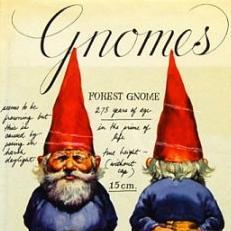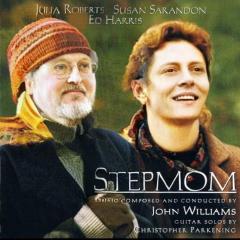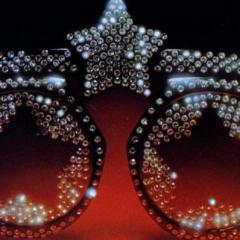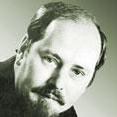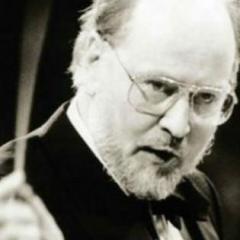-
Posts
8,468 -
Joined
-
Days Won
64
Reputation Activity
-
 Sharkissimo got a reaction from _deleted_ in The Color Purple VS. Bridge of Spies vs. Ready Player One
Sharkissimo got a reaction from _deleted_ in The Color Purple VS. Bridge of Spies vs. Ready Player One
The Color Purple is top 5 Spielberg and Quincy's score doesn't get enough love.
-
 Sharkissimo reacted to TownerFan in The Legacy of John Williams (Website & Podcast)
Sharkissimo reacted to TownerFan in The Legacy of John Williams (Website & Podcast)
Hello,
Some of you are already aware of this, but I want to spread the news to every JWFan here:
After a few months working on it on and off, I'm now ready to launch this side project of mine which I hope will encounter interest among fellow John Williams admirers. It's time for me to give back the immense amount of gratitude I have toward this great composer. It's a blog called "The Legacy of John Williams":
https://thelegacyofjohnwilliams.com/
The purpose is to build a platform to collect and gather material from people around the world who were inspired by the music of John Williams--mostly musicians, composers, conductors, but also filmmakers, film professionals, historians, music critics and scholars. I want to give space also to admirers who have interesting stories and perspectives to tell and share. The goal is to celebrate the rich musical legacy John Williams is giving and leaving to our lives, for centuries to come.
There is a larger and much more ambitious goal at the core of this project, but it’s too soon to speak about it. If this blog will get momentum and will become the platform I hope will be in the foreseeable future, everything will be addressed. As you can see, it's still work-in-progress, but from now on I plan to build and update it regularly, so be patient, I promise it will be worth your time. Taking a cue from the Maestro's writing process, I see this project as a living thing that can be improved and changed over the course of time.
Today I published the first piece of content, an exclusive interview with pianist Gloria Cheng about the Montage recording/documentary:
https://thelegacyofjohnwilliams.com/2018/09/27/conversation-with-pianist-gloria-cheng/
I've also set up Facebook and Twitter pages, so I hope you will like/follow:
https://www.facebook.com/thelegacyofjohnwilliams
https://twitter.com/TheLegacyofJW
Of course feedback from anyone is greatly appreciated.
Thank you for listening!
-
 Sharkissimo reacted to Naïve Old Fart in Why do people hate Rosenman's score for Star Trek IV The Voyage Home.
Sharkissimo reacted to Naïve Old Fart in Why do people hate Rosenman's score for Star Trek IV The Voyage Home.
Ok, this is a tricky one. IV seems to be the Marmite score of STAR TREK, and not without good reason.
While I generally like Rosenman's "atonal" stuff (BENEATH THE PLANET OF THE APES; FANTASTIC VOYAGE), I really don't think that it works, here.
IV is a conventional fish-out-of-water yarn, set to a science fiction backdrop, with a firm ecological message - "learn to respect the planet, or else mankind will die".
Added to that, there's an almost-romance, some nice character moments, and, behind the camera, great (and Oscar nominated) photography and sound.
Then there's the music...
With so many elements, and mini-stories, it needed the score to pull all of it together. Taken on their own, the cues are set-pieces, rather than parts of a cohesive whole. There's no "journey" to go on, no "story" that the music tells. It's just "there".
Still that didn't stop Rosenman earning himself an Oscar nod, and the film becoming the most successful STAR TREK film ever released. Somebody did something right.
Taken on face value, I like it, but I can't help thinking that IV would be a much deeper and richer film if Nimoy had swallowed his pride, and allowed Horner to complete his TREK trilogy.
Ps, I'm with @Thor: MARKET STREET is the best track on the CD.
-
 Sharkissimo reacted to Lewya in The Leonard Rosenman Thread
Sharkissimo reacted to Lewya in The Leonard Rosenman Thread
It is extremely rare that a film composer receives this kind of attention from leading concert composers, so Rosenman must have done things right.
Both John Adams and John Corigliano are fans of him, especially of East of Eden and Rebel Without a Cause with Adams favoring the latter and Corigliano the former. Rosenman himself considered East of Eden his best score.
Here is what John Adams wrote about Rosenman in liner notes in the East of Eden and Rebel Without a Cause recording he conducted:
Leonard Rosenman is an important transitional figure in the history of film music: a highly skilled composer whose best work evolved during a critical period between that of old school Europeans like Max Steiner and Dimitri Tiomkin and that of the later, more pop-oriented composers of the 60s, 70s and beyond. Rosenman was doubtless one of the most thoroughly schooled musicans ever to work in Hollywood. Before making an acquaintance of director Elia Kazan in New York in 1954, he studied composition and theory at the University of California, Berkeley with Roger Sessions, the most serious of all serious composers. He was thoroughly familiar with all the latest modern techniques in the works of Stravinsky, Bartók and Schoenberg. Most importantly, he possessed one thing Sessions lacked: the common touch, an ability to mirror the American vernacular experience in his music. This was an essential ability for anyone hoping to make a successful foray into commcercial film music.
East of Eden, Rosenman's first score was an ideal vehicle for his talents. The John Steinbeck story combines homespun simplicities of mid-century American social realism with the darker, more symbolic themes of filial disobedience and Oedipal search for his the lost mother. Set among the lush and irresistible beauty of the northern California coast, this 1955 film took the young James Dean into almost instant celebrity in the role of the tormented, misunderstood and unappreciated brother and son. The story, with its consciously Old Testament motifs acted by an ensemble of exceptionally gifted performers, including Julie Harris, Raymond Massey and Burl Ives, is one of the better examples of what a major Hollywood film could achieve.
Rosenman's score is, when required, appropriately evocative of a "simple" American past (the story takes place during World War I). He utilizes both the widely spaced harmonies and simple diatonic tunes made famous by Copland, but Rosenman's ideas are never whole-cloth borrowings. His music has its own originality. The famous "Main Theme" with its innocent, almost childlike 3/4 lilt is one of the most memorable melodies in all American cinema. The music matches the qualities of Steinbeck's prose with uncanny exactness, at one moment being simple and plainspoken to the point of rusticity, and then modulating abruptly to a suppressed brooding that is far more sophisticated and self-aware than any earlier example of music for the screen.
Written a year later, Rebel Without a Cause was musically even more successful, although the film, with its portrayal of misguided, troubled American youth, lacked the depth and richness of the Steinbeck story. While East of Eden was a period piece evoking for the American viewer an already lost idyllic past, Rebel Without a Cause was harshly contemporary and showed a strong influence of film noir in its treatment of the subject and characters. It may well be the film that created the whole "Fifties" stereotype, with its pompadour male hairstyles, car fetishes, and gangs of disaffected teenagers given to casual violence and unable to communicate with their uncomprehending elders. It is perhaps not insignificant that his film predates the premiere of West Side Story by two years.
For the film, which provided another starring role for James Dean and an early appearance by all-too-worldly Natalie Wood, Rosenman created a complex score that moves effortlessly between the urban big band jazz of Stan Kenton and the moody atmospheres of Bartók and Stravinsky. Bartók's Music for Strings, Percussion and Celesta, hardly known to the general public in 1955, makes a particularly evocative model in film's "planetarium" scene, during which the 50s' newfound preoccupation with outer space and extraterrestial events is eerily worked into the film's existential themes. The fractured rhythms and polytonalities of Stravinsky's Rite of Spring are felt in the scenes of violence and terror, although here, as elsewhere, Rosenman never loses his own original voice. Unlike many a lesser film composer, Rosenman managed to avoid resorting to hasty pastiche or overt borrowing. The two scores show what could actually be achieved when a skilled composer and a director sensitive to the powers of music were allowed to work together under conditions of artistic freedom, unimpeded by the crush of market forces - a rare moment in an industry in which art and money always maintain a difficult equipoise. - JOHN ADAMS
During Sunday's pre-concert talk, conductor John Adams – who recorded Rosenman's East of Eden and Rebel Without a Cause suites for Nonesuch in 1995 – described the composer as "one of the most important, skilled and knowledgeable of all film composers." "Adams took the microphone during the concert to extol Rosenman's virtues, calling him a "sophisticated composer" who helped to bring "psychological depth" to 1950s films like Rebel Without a Cause."
John Corigliano: "East of Eden with Leonard Rosenman's music, is a great film on every level. It's like a combination of Berg and Barber and it's beautiful, and it has a simple American melody also of pure innocence. That score is great. It's so powerful, and in addition to that highly chromatic and nervous, wonderful sinewy beauty he also has an innocence like Copland. It should have a symphonic version played by major orchestras".
-
 Sharkissimo got a reaction from Gnome in Plaid in "Nixon" cue titles from GEMA repertoire
Sharkissimo got a reaction from Gnome in Plaid in "Nixon" cue titles from GEMA repertoire
Well, I could just reply "Because it's fucking awesome. That's why" followed by this:
Not much thought involved!
-
 Sharkissimo got a reaction from The Illustrious Jerry in What are your favorite shots in a movie?
Sharkissimo got a reaction from The Illustrious Jerry in What are your favorite shots in a movie?
Skyfall is laced with beautiful shots, but the one that always stays with me is Deakins' tribute to J. M. W. Turner.
-

-
 Sharkissimo got a reaction from _deleted_ in What do you think about The Spark from The Last Jedi?
Sharkissimo got a reaction from _deleted_ in What do you think about The Spark from The Last Jedi?
As both a combination of film and image and a standalone cue, it's a knock out (if Luke could kill, he probably will...).
I can't be the only one who sees it as a natural development of the Jedi Steps theme (which is in itself a sly evocation of Vader's theme). It's as if Williams is observing that in his final act of mastery, Luke has now fully integrated his own shadow with his self into a well-functioning whole, though a process of individuation. This process has been mediated by his soul-image or anima, in the form of Yoda (and to some extent Rey), the spiritual middle-man between his conscious and unconscious. His tainted family history (Vader) and youthful rebellion has been reconciled with his noble Jedi ideals. The dark now at one with the light.
That's my bit of cod Jung for the day.
-

-
 Sharkissimo reacted to Tom in NEW Rise of Skywalker Vanity Fair Article includes picture of Williams conducting
Sharkissimo reacted to Tom in NEW Rise of Skywalker Vanity Fair Article includes picture of Williams conducting
JWfan is a family forum, not one of your swing joints.
-
 Sharkissimo reacted to Giftheck in Junkie XL’s TERMINATOR: DARK FATE (2019)
Sharkissimo reacted to Giftheck in Junkie XL’s TERMINATOR: DARK FATE (2019)
Take your awful Dad Jokes pun, go sit on the step outside and think about what you've done.
-
 Sharkissimo reacted to Loert in Masked Dissonance in The Music of John Williams
Sharkissimo reacted to Loert in Masked Dissonance in The Music of John Williams
It's interesting that you talk about Williams "masking" dissonances, as if Williams was trapped into employing dissonances which he then tried to cover up by choosing the right instruments (probably not what you meant, but it sounds that way!). Of course, the opposite is really true - Williams mixes in the dissonance himself. However, rather than drawing attention on those very dissonances (as, for example, Boulez might...or "concert" JW might) he tends to treat dissonance as something like musical seasoning; to spice up what would otherwise be fairly dull, consonant music. One of the ways he does this is to do what sounds like "covering up" dissonance using the orchestra, which I guess is what you allude to. But, of course, this is just an illusion really. Every note you hear comes from the composer's pen, whether or not in the end they sound as if they are appearing out of nowhere, or as an "accident".
So what is JW's favourite spice? When it comes to brass, It is undeniably the minor 2nd interval between the 7th and 8th degrees of the scale (i.e. B-C in C major). JW would sooner jump off a bridge than not use this dissonance in a fanfare. Listen to the one that plays when Yoda raises the ship in TESB, which is in E major:
Now, somebody with an "untrained ear" might be surprised to know that when they are listening to the above, they are also listening to this:
https://picosong.com/whnva
These are the 7th and 8th degrees of the E major scale: D#-E.
JW uses a lot of this sort of dissonance in the E.T. flying theme (in C major):
Listening to this, one might naively think that the accompanying horns at the start are playing simple major chords (C-E-G, or 1st, 3rd and 5th degrees). But in fact, they are playing "add2" chords, i.e. chords with the 2nd degree added (D), so there is a dissonance between the C-D and the D-E. Later on, JW employs his beloved 7th-8th dissonance, at 0:20 (F#-G) and 0:25 (G-Ab). These dissonances on their own sound like they belong to a horror movie, not a feel-good family movie (though I grant that E.T. does contain some horrifying bits...). But when played by the brass in a certain range, these dissonances take on more of a "colouring" function, and you might miss these dissonances if you don't pay attention. However, take away these dissonances, and you take away an integral part of the whole. This is what I mean by JW using dissonances as "seasoning".
Now for something entirely different. Listen to the prologue music of HP1, when Dumbledore does...whatever he does:
Listen to that last chord at 1:15. Can you hear "it"? I made a mockup of this portion some years ago, where "it"'s clearer; listen to the high register from 0:17:
https://picosong.com/whnWd
Williams here is using the winds to apply a purely "colouristic" effect to the brass chord in the foreground.
This is what the wind chord sounds like on the piano:
https://picosong.com/whnvw
This is what the brass chord sounds like on the piano:
https://picosong.com/whnv3
By the way, Williams here is essentially recycling a technique he used in another film, TPM, where he used a similar wind chord. However, that time he used it in a much more dramatic manner, less as a purely colouristic effect (listen to the chord at 3:28 and pay attention to the high register):
Finally, I want to go off the track a bit (though I hope it's still relevant) and close with some music from another composer who was a master at "masking" dissonances via orchestration, a composer who greatly influenced Williams and other Hollywood composers - namely, Korngold. His opera "Das Wunder der Heliane" closes with the two lovers making their way into heaven through the pearly gates, being welcomed by the sound of singing angels. But if you listen to it, there's a distinctly bittersweet tone coming from the orchestra:
It's almost like the angels merely represent a "sheen" of something that is filled with sadness and sorrow. The reason is that the orchestral accompaniment is in fact full of dissonances - try playing some of those chords which fall on the downbeat. There are instances earlier in the opera where Korngold plays a major chord on top of a minor chord, though it's barely audible the way he orchestrates it.
-
 Sharkissimo reacted to SteveMc in Masked Dissonance in The Music of John Williams
Sharkissimo reacted to SteveMc in Masked Dissonance in The Music of John Williams
Inspired by @Loert's thread on "The Map Room: Dawn," I wanted to ask if there are any particular examples orchestration being used to kind of mask dissonances in John's music.
Often, you get the sense that his music is considered very straightforward, even "pop" by many for it's listenability, accessibility, and melodic recognizability, but, when you listen closely, and espeiclly when you hear a piano reduction, for example, the striking harmonic invention and complexity behind this facade, if you will, becomes apparent. It is almost as if John has achieved the perfect synthesis between romantic traditions and modernist developments in music.
How big a role does this idea of orchestration used to mask dissonance, which was brought up in the aforementioned thread, play in all of this?
-
 Sharkissimo got a reaction from Not Mr. Big in The Classical Music Recommendation Thread
Sharkissimo got a reaction from Not Mr. Big in The Classical Music Recommendation Thread
Anyone else suspect that Jerry might've been an admirer?
JWFAN is dire need of that eye-rolling reaction smiley.
-
 Sharkissimo got a reaction from Nick Parker in Williams' manliest most testosterone-fuelled music?
Sharkissimo got a reaction from Nick Parker in Williams' manliest most testosterone-fuelled music?
Johnny goes G-Funk.
-
 Sharkissimo reacted to Loert in The Classical Music Recommendation Thread
Sharkissimo reacted to Loert in The Classical Music Recommendation Thread
I love the "chirping" section starting at 14:39. In the Ansermet recording you can clearly hear the bells doubling the decending chromatic strings, which sounds so unusual it's almost like it represents some sort of hallucination (at 12:33 and 13:03):
-

-

-

-
 Sharkissimo reacted to Dixon Hill in Pinar Toprak's CAPTAIN MARVEL (2019)
Sharkissimo reacted to Dixon Hill in Pinar Toprak's CAPTAIN MARVEL (2019)
I've recognized TheUlyssesian as one of the more obnoxious and troublesome elements of JWFan for some time now. Glad the rest of you are catching on. As for this other controversy, give me a break.
-
 Sharkissimo reacted to John in Pinar Toprak's CAPTAIN MARVEL (2019)
Sharkissimo reacted to John in Pinar Toprak's CAPTAIN MARVEL (2019)
Can we please just stop with the casual sexism on this site? Like geez
-
 Sharkissimo reacted to Dixon Hill in John Powell Shrine
Sharkissimo reacted to Dixon Hill in John Powell Shrine
Powell > Silvestri > Arnold
Sometimes he's better than Williams.
-
 Sharkissimo got a reaction from The Illustrious Jerry in What are some of your favorite screenplays?
Sharkissimo got a reaction from The Illustrious Jerry in What are some of your favorite screenplays?
Spartacus - Dalton Trumbo
All About Eve - Joseph L. Mankiewicz
Lawrence of Arabia - Robert Bolt and Michael Wilson.
All the President's Men - William Goldman
Patton - Francis Ford Coppola and Edmund H. North
Some Like it Hot - Billy Wilder & I.A.L. Diamond
The Spy Who Came in from the Cold - Paul Dehn and Guy Trosper
Glengarry Glenross - David Mamet
-
 Sharkissimo got a reaction from Nick Parker in Clone Army Theme from Star Wars: Episode II?
Sharkissimo got a reaction from Nick Parker in Clone Army Theme from Star Wars: Episode II?
Ask Your Doctor if Heartwood® is Right For You.
-
 Sharkissimo reacted to Nick Parker in Clone Army Theme from Star Wars: Episode II?
Sharkissimo reacted to Nick Parker in Clone Army Theme from Star Wars: Episode II?
Side effects may and often include successive priapisms.


